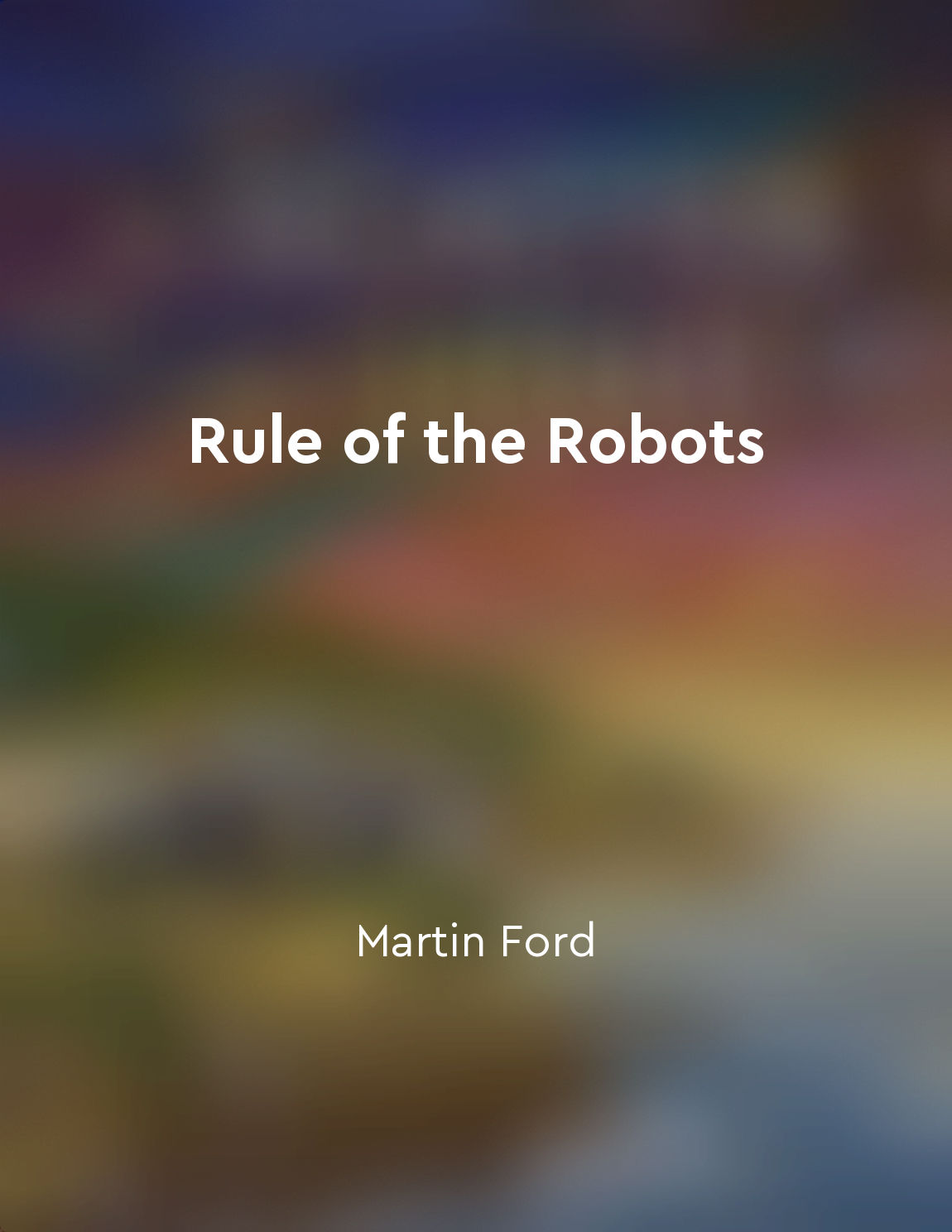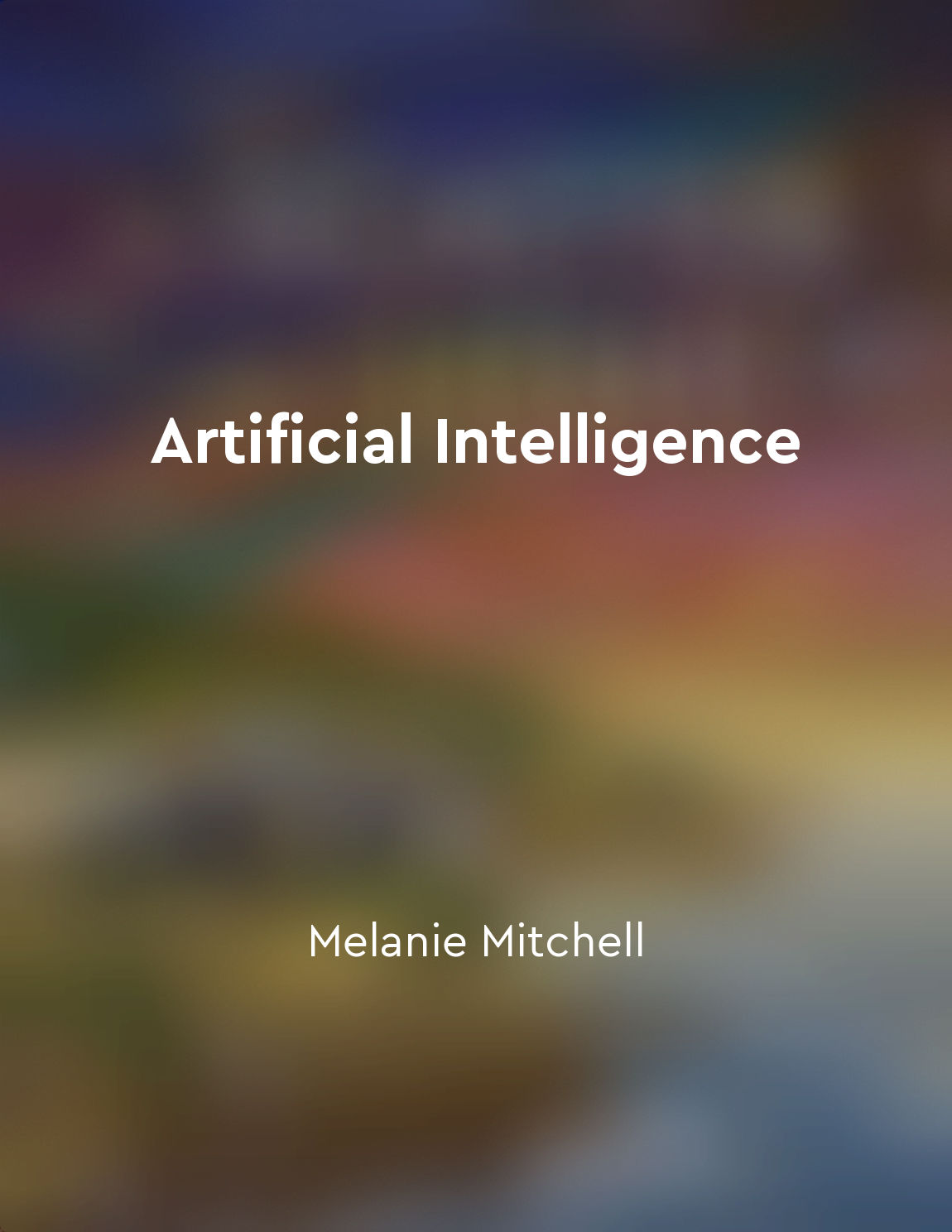Audio available in app
Intelligent behavior does not necessarily require conscious thought from "summary" of Artificial Intelligence by Melanie Mitchell
The idea that intelligent behavior does not always depend on conscious thought may seem counterintuitive. After all, we often associate intelligence with our ability to think, reason, and make decisions consciously. However, this assumption is not always valid in the realm of artificial intelligence. In fact, many AI systems exhibit intelligent behavior without possessing consciousness. These systems can perform complex tasks, solve problems, and even learn from experience, all without being aware of their actions. This phenomenon challenges our traditional understanding of intelligence, which is deeply rooted in human cognition and consciousness. One example of this is the field of deep learning, where artificial neural networks are trained to recognize patterns and make predictions based on vast amounts of data. These systems can achieve impressive results in tasks such as image recognition, natural language processing, and even playing games like chess or Go. Despite their high level of performance, these AI systems do not possess consciousness or awareness. Another example is evolutionary algorithms, which simulate the process of natural selection to solve optimization problems. These algorithms can evolve solutions to complex problems by iteratively generating, evaluating, and selecting candidate solutions. The intelligent behavior exhibited by these algorithms emerges from the interaction of simple rules and mechanisms, rather than from conscious deliberation.- The concept that intelligent behavior does not necessarily require conscious thought challenges our preconceived notions of what it means to be intelligent. By studying artificial intelligence, we can gain new insights into the nature of intelligence and expand our understanding of the possibilities and limitations of intelligent systems.
Similar Posts
Hardware and software work together to execute programs
To understand how a computer program runs, it is essential to grasp the intricate interplay between hardware and software. Hard...

The fear of death is driving many to seek immortality through technology, but at what cost to humanity?
The idea of cheating death is as old as humanity itself. From ancient myths and legends to modern scientific research, humans h...
Value loading AI systems
The task of ensuring that a superintelligent AI system has human-compatible values is a complex and multifaceted challenge. Thi...
Memes are cultural replicators that shape society
In Darwin's Dangerous Idea, Dennett introduces the concept of memes as cultural replicators that have the ability to shape soci...
Education and retraining programs will be crucial in adapting to the AIdriven economy
As we transition into an AI-driven economy, the role of education and retraining programs becomes increasingly vital. The rapid...
AI has the power to amplify human potential and creativity
The idea that artificial intelligence can enhance human potential and creativity is a fascinating concept explored in the book ...

Inequality driven by technological disparities
The acceleration of technology is leading to a widening gap in wealth and opportunity. As new technologies emerge, those who ca...

The pace of technological change is accelerating, requiring quick adaptation
The rapid advancement of technology is reshaping the world around us at an ever-increasing rate. As new innovations emerge, ind...
AI development necessitates ethical guidelines
In designing AI, we are essentially creating new forms of life, with the ability to think, feel and act. Just as we have ethica...

Automation is reshaping industries
The transformative power of automation is evident across a wide range of industries, from manufacturing to finance to healthcar...


